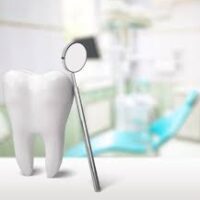In our life we spend 1000 hours expressing our thoughts and feelings about our mouth and the mouth itself is also used to feed us for survival. So our thoughts and our mouths work out the entry of food for our survival. We use the same mouth, abusing someone and also the mouth of it by not taking good care enough. Over a lifetime, people develop a variety of oral habits such as smoking, chewing snuff, betel nuts, and enjoying sweets. Any potentially harmful habit if it takes time to care for your mouth – wisdom teeth headache. Yes, the “time”, because during the day, everyone would eat and talk and drink. Thus, the saliva does not allow the formation of stains from starch or sugar, or between the teeth. But in the night while we sleep the mouth is stationary and the flow of saliva is negligible. This leads to the formation of starch and sugar particles between teeth. After some time this creates the plague and tartar.

The mouth can be seen as a “gateway” that provides a fundamental connection to other parts of our body. Given their vital connections to the digestive tract, brain and circulatory system, the doctors in all disciplines of medicine put more emphasis on oral health in relation to the common good.
Now, after knowing, see this important fact, sometimes, what specific things make some people have healthy teeth, even if they do not brush or floss your teeth, have for millions of other people very bad teeth, even when regular brushing and flossing!
1. Inadequate ptyalin
An admired faith is that the results of the decay due to the sugar that forms a patch of bacteria on the teeth. Usually the culprit is starch, which was not broken down into simple sugars. While the tooth-preserving systems in our body are functioning, this starch is wrecked down by ptyalin into sugar, which is then melted in the saliva and washed away.
If this system prevents tooth loss, the strength remains trapped around the teeth. Bacteria feed on this detrimental trapped strength, releasing acids, the melting, and the destroying tooth decay. Therefore, a sugar and carbohydrate diet based on refined sugar is dangerous to the teeth. To form the ptyalin enough, enough Vitamin B is needed, which is naturally found in refined carbohydrates.
2. The alkalinity of the saliva
At the time that acids are formed, the enamel on the teeth to eat is the second defense line of the body to deactivate them with alkaline buffers originating in the saliva. Alkaline components of Saliva are magnesium, calcium, sodium and potassium. Each of these minerals (especially calcium) is scarce, losing the ability of saliva to buffer, and the likelihood of tooth decay is multiplied manifold.
3. Insufficient saliva
The ability of the saliva of the buffer is not only lost, lost for its alkaline nature, but also when saliva itself is not sufficient. Meals that are short on vegetables, liquids and fruits, and elevated on cereals; insufficient vitamin A; or low thyroid levels cause a dry mouth.

5. Sensitive teeth
Sensitivity also recognized as dentin hypersensitivity is momentary tooth uneasiness or ache on drinking cold liquids, breathing cold air or eating cold food. The formation of good oral hygiene habits in childhood can help to overcome decay.
Here are some of the basic oral habits from childhood to drink to avoid dental problems:
– Have your child only water between meals and only drink beverages with meals.
– The juice should be less than 10% of the diet of your child.
– Do not allow your child to go to bed with a bottle of sugary liquid.
– Do not coat the pacifier to the child’s desire of the sweet liquid.
– Brush your child’s teeth before bedtime and maintain this habit into adulthood.
– Visit your dentist regularly to identify any dental problems.
The key to overcoming dental caries is to minimize exposure to sugar, refined carbohydrates, drinking based diet and regular brushing and flossing after every meal or sugary drink.

